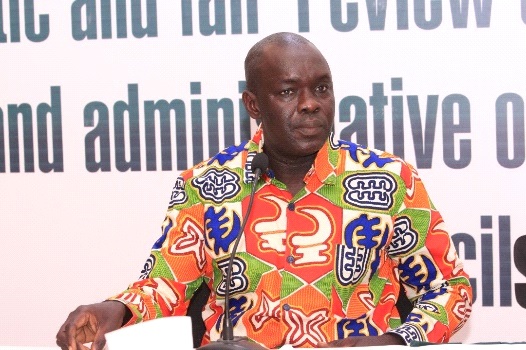By Makutu Manneh
The Chief Executive Officer (CEO) of Kuntaur Area Council, Momodou Sambou, has admitted before the Local Government Commission of Inquiry that the council has no justification for failing to prepare regular bank reconciliations.
During questioning, Lead Counsel Patrick Gomez put it to Sambou that the council’s failure to reconcile accounts monthly was a matter of “choice and convenience.”
“In administration, it is difficult to have everything at 100 percent. There must be lapses,” Sambou responded. “These are lapses we learn from.”
Gomez rejected this argument, insisting that the issue was not a mere lapse but a long-standing failure in accountability.
Failure to Prepare Bank Reconciliations
The inquiry revealed that bank reconciliations at Kuntaur Area Council are done annually instead of monthly. Sambou initially claimed that accountability still existed despite this, but Gomez strongly disagreed.
“There is no accountability. You cannot have accountability if you intentionally disregard your obligations under financial regulations,” Gomez said.
Sambou maintained that the council is committed to financial oversight but conceded, “Bank reconciliations are not done often, and we will adjust to that.”
When asked why reconciliations were important, he acknowledged that they help management track transactions and compare cash book records with actual bank balances.
Gomez challenged him: “Why would you not insist on preparing them? Are you not interested in knowing where every dalasi is?”
Sambou responded that the finance director is responsible for preparing reconciliations and reporting to the general council. However, Gomez pointed out that the finance director reports to the CEO—not directly to the council. Sambou agreed.
Lack of a Cashier
Further scrutiny was placed on the council’s lack of a cashier. Sambou admitted that when he took office, he assigned the senior secretary to the role, but she struggled with trial balances and was later removed.
Asked why he did not formally request the appointment of a cashier, he said, “Given the volume of salaries the council pays, we believed the cashier role would be underutilized.”
Gomez dismissed this reasoning. “The council needs a cashier just as much as it needs a CEO and a finance director. The role is not optional,” he said.
The commission also heard that finance director Morro Keita had testified that revenue collectors—and at times he himself—performed cashier duties. When questioned about this, Sambou claimed he was unaware.
“If the finance director says he does that, I cannot deny it, but it is not to my notice,” he said.
Strategic Plan and Internal Audit
Sambou testified that a strategic plan was in place when he joined the council but had since expired. While a new plan had been developed, it was still awaiting validation.
He admitted that the council followed the plan only “to a certain extent—about 40 percent,” blaming financial constraints.
Gomez dismissed this excuse, stating that many parts of the 2019–2022 plan did not require funding, yet still remained unachieved.
On internal auditing, Sambou revealed that when he took over, the unit had only one staff member. “Now, we have two,” he said.
Asked whether all payments underwent pre- and post-audits, he replied, “I wouldn’t say yes, but 95 percent of our activities since 2021 have gone through internal audit.”
However, he admitted that some expenditures made at collection centres were not audited.
Gomez warned that such unchecked payments could accumulate into significant sums, as noted in audit reports.
When asked why he authorised payments at collection centres, Sambou gave an example: “If a collector is in Sami all day, they cannot return to the council for approval just to buy lunch. They must be allowed to eat.”


















